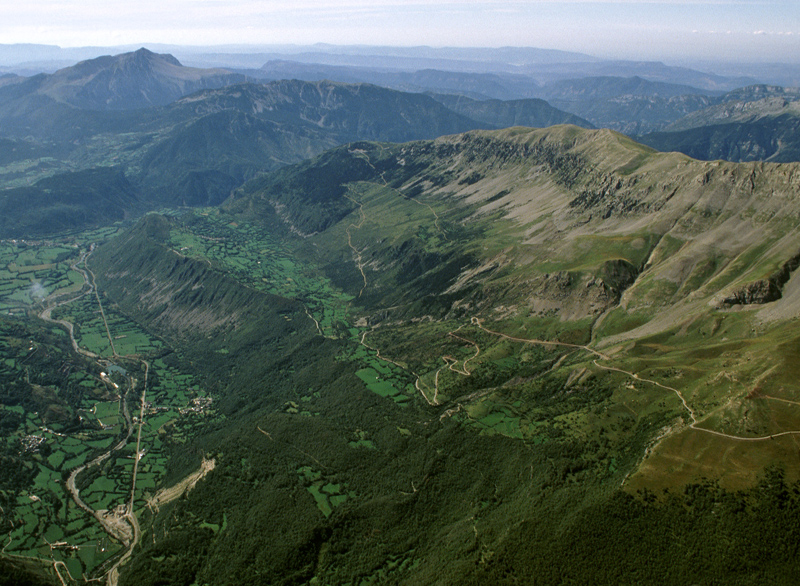The Ribagorza region, located in the heart of the Aragonese Pyrenees, has embarked on a transformative journey to become a Smart Tourist Destination (STD). This project, driven by the Tourist Sustainability Plan in Destination, and funded by Next Generation EU funds, focuses on implementing a comprehensive methodology that revolves around five key pillars: governance, innovation, technology, sustainability, and accessibility. Ribagorza’s inclusion in the Smart Tourist Destinations Network (managed by SEGITTUR) represents a clear commitment to modernizing and improving the tourism competitiveness of the area, ensuring a more inclusive, technological, and sustainable tourism approach.
Tourism in the Pyrenees: An Innovative Experience
Ribagorza is not just nature and culture; it is also an example of how innovation can enhance the tourism experience. Becoming a Smart Tourist Destination involves much more than just the digitalization of services. It means creating an infrastructure that facilitates interaction and integration of visitors with the environment, improving the quality of life for residents and providing a more complete and satisfying experience for those who visit the region.
With the support of SEGITTUR, Ribagorza has taken the first step towards this transformation with an in-depth diagnostic process. This analysis covers 97 requirements and 261 indicators, evaluating the maturity level of key aspects such as sustainability and accessibility in tourism services and resources. The ultimate goal is for Ribagorza to become a benchmark for smart tourism in the Pyrenees, serving as a model both nationally and internationally.
Accessibility and Sustainability: Key to Tourism in Ribagorza
Within the Tourist Sustainability Plan, one of the key pillars is universal accessibility, a concept that goes far beyond removing architectural barriers. This approach includes considering the functional and cultural diversity of visitors, as well as leveraging new technologies to enable digital accessibility. According to the Good Practices Guide for Accessibility in Smart Tourist Destinations, it is essential to ensure that everyone can enjoy their surroundings on equal terms, regardless of physical or cognitive abilities
Sustainability is another core aspect of Ribagorza's strategy. This tourist destination is committed to preserving its natural and cultural heritage, while promoting responsible tourism that minimizes environmental impact and maximizes benefits for the local community.
Benefits of Becoming a Smart Tourist Destination
The transition to a Smart Tourist Destination offers multiple benefits for both Ribagorza and its visitors and residents. Some of the main advantages include:
- Leadership in Innovation: Ribagorza positions itself as a leader in the digital transformation of tourism, setting an example for other regions.
- Improved Governance: Collaboration between public and private entities facilitates more efficient and transparent destination management.
- Sustainability and Accessibility: Advancements in these areas enhance the tourist experience for everyone, regardless of their abilities or age.
- Increased Competitiveness: The integration of cutting-edge technologies and continuous improvements increase the destination’s competitiveness, attracting more tourists.
- Improved Quality of Life: Residents directly benefit from improvements in infrastructure and services, which positively impacts their daily lives.
Ribagorza and Its Future in Pyrenean Tourism
Ribagorza is at a key turning point in its tourism evolution, with a clear vision for the future. The Pyrenees offer a unique setting, and the combination of technology, accessibility, and sustainability will further enhance its appeal. By being part of the Smart Tourist Destinations Network, Ribagorza ensures that this transformation process is ongoing, adapting to the challenges and opportunities of global tourism.
With initiatives like this, Ribagorza is positioning itself as one of the best mountain destinations in the Pyrenees, not only for its breathtaking landscapes but also for its commitment to inclusive and responsible tourism.

